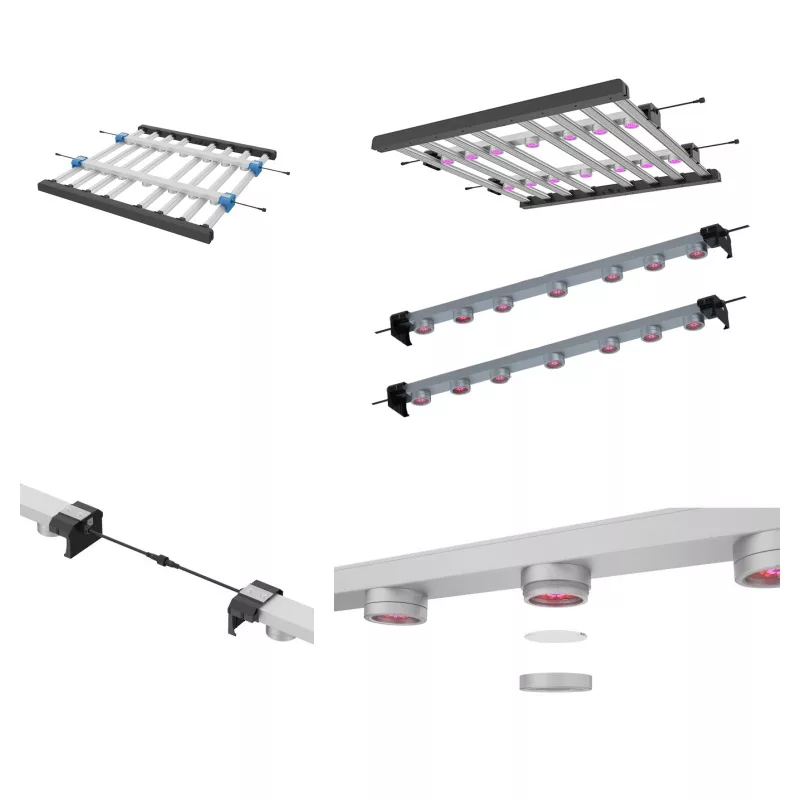Yes, UV lights can help plants grow in certain ways, but it's important to understand the different types of UV light and how they affect plants. UV lights can have both positive and negative effects on plant growth, depending on the specific wavelengths and intensity of the UV light used. TUBU LED Grow Lights are a range of high-quality, energy-efficient LED lights designed to promote healthy plant growth in indoor environments. They offer a variety of features and benefits that make them a popular choice for both home growers and professional horticulturalists.
UV-B Light
UV-B light, which falls in the 280-315 nm wavelength range, can be beneficial for some plants. Exposure to moderate levels of UV-B light can stimulate the production of certain protective compounds in plants, such as flavonoids, which can enhance their resistance to environmental stressors. However, excessive exposure to UV-B light can be harmful and lead to damage in plants.
UV-A Light
UV-A light, which falls in the 315-400 nm wavelength range, is less harmful to plants and can have some positive effects. It can contribute to photomorphogenesis, which is the process that controls plant growth, development, and flowering. UV-A light can also enhance the production of certain pigments, such as anthocyanins, which can have antioxidant properties.
UV-C Light
UV-C light, which falls in the 100-280 nm wavelength range, is highly damaging to plants and is typically used for sterilization purposes rather than promoting growth.
Precautions
It's important to note that most traditional grow lights used for indoor gardening do not emit significant amounts of UV light. However, some specialized LED grow lights or supplemental UV lights may include UV-A or UV-B wavelengths to provide a broader light spectrum for specific plant needs.

while UV lights can be helpful for plants in some cases, it's important to use them correctly. Here are some things to keep in mind:
The type of UV light: UVA is generally safe for plants, while UVB should be used in moderation. UVC should be avoided altogether.
The intensity of the light: Too much UV light can damage plants, so it's important to use lights with the correct intensity for the type of plant you are growing.
The duration of exposure: Plants need some time to recover from UV exposure, so it's important not to leave them under the lights for too long.
Contact us
If you are considering using UV lights for plant growth, it is crucial to understand the specific light requirements of the plants you are growing and to use UV lights in a controlled manner, ensuring they do not cause harm or stress to the plants. Consulting with experts in horticulture or plant biology can provide more specific guidance for your particular plant species and growing conditions.
Advanced UVIR Grow Light Bar
Advanced UVIR grow light bar adopting innovative light-transmitting materials, IP65 protection grade, Waterproof connector fast series connection, Automatic spring clip-on strong installation adaptability,
3 Year Warranty on Complete Fixture. (LEDs, Driver, & Housing)
Are you still worried about poor plant growth? Do you want your plants to thrive and bear fruit? Advanced UVIR Grow Light Bar is here to help your plants grow healthily!
This grow light uses an advanced UVIR spectrum to provide plants with a full range of lighting needs. UV spectrum can help plants synthesize more vitamins and minerals, enhance plant disease resistance, and increase plant yield and quality. IR spectrum can help plants promote photosynthesis and improve the photosynthesis efficiency of plants.
Blog posts that may interest you
